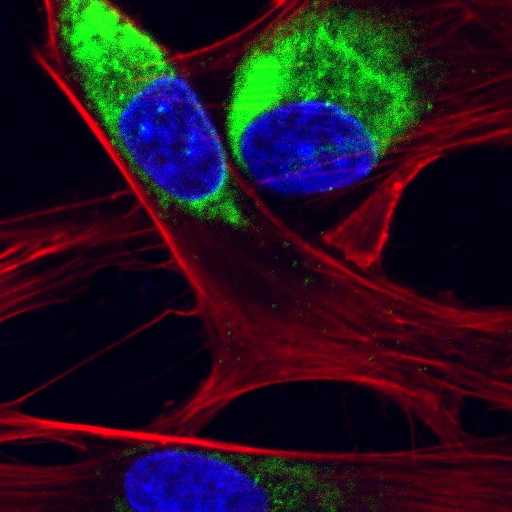Submitted on June 11, 2018
In a paper released by Nature Communications, UCSF Urology researcher Nadia Roan, PhD and collaborators show semen inhibits Zika virus infection of cells and tissues from the anogenital region. Muller et al findings can be seen here.

CAPTION: Cells from mucosal tissues are highly susceptible to infection by Zika virus, but this infection is potently inhibited by semen. Shown is an image of fibroblasts purified from human genital mucosal tissues and then exposed to Zika virus. The nuclei of cells are shown in blue, while actin filaments which outline the rest of the cells is shown in red. Protein E produced by Zika virus, showing the sites of viral replication, are shown in green. When semen is added, Zika infection is completely blocked (not shown). This image is taken from a study by Müller et al (Nature Communications 2018) demonstrating that semen harbors a potent inhibitor of Zika virus infection, thereby providing a plausible explanation why the virus is mostly transmitted by mosquito vectors and not by sexual transmission.